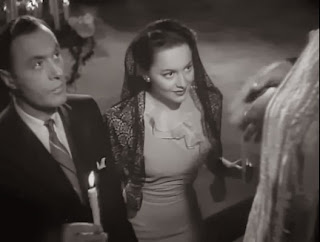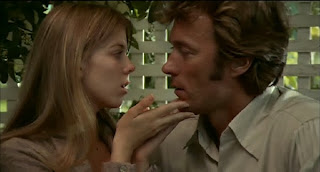I've seen just 11 full-length films since last we met, as I was on my honeymoon for the rest of that time (yes, lovely thank you). Here they are:
FEATURES:
![]()
CINEMA: The World’s End (Edgar Wright, 2013) - The high school hero unable to replicate their triumphs in an adult arena is a character that echoes through American popular culture. But whereas across the Atlantic the figure tends to be a former quarterback or lead cheerleader, the concluding part of Edgar Wright's Cornetto trilogy gives us a happily British variant (Simon Pegg): a chain-smoking, hard-drinking, trenchcoat-wearing bad boy whose greatest moment was having sex in a disabled toilet and who has degenerated - or perhaps followed along the same path - into an alcoholic mess.
Finding himself at his lowest ebb, this wonderful tragi-comic creation, Gary King, is inspired to tackle the pub crawl that beat him on that fateful, feted night, in the company of the same four friends, now each responsible adults in the shape of Nick Frost, Paddy Considine, Martin Freeman and Eddie Marsan. It's then that an army of replicants appear, threatening not just the future of humanity, but also Gary's drinking binge. Dispensing with the pitifully blunted humour of Pegg and Frost's Paul, with its weakly universal, US-centric references, The World's End uses the same recipe as the first two Cornetto films: fiercely British comedy, dead-eyed potshots at genre cliche, and moments of beautiful poignancy, shorn of the irony that dominates the rest.
The first half is a wonder: affecting, surprising - with a first scene just as clever as Wreck-It Ralph's similar opening salvo - and full of brilliant gags. The second, while very entertaining, can't quite maintain that momentum, with an over-reliance on merely competent action, some heavy but muddled exposition and a final 20 rife with iffy post-modernism and high-reaching, not altogether successful dystopianism. And yet despite being the weakest of the trilogy, it's a fitting wrap-up too: narratively the most inconsistent, with an unconvincing, barely escalating external threat - a legion of blue-blooded aliens - but also the most ambitious, and arguably successful of the three in terms of characterisation, emotional maturity and belly laughs. And also swearing. Its jokes are defiantly parochial (there's one about the Antiques Roadshow) and its soundtrack - drawn from the turn of the nineties - gives it a firm sense of both time and place. The World's End stutters a little in story terms, but like its predecessors it's still a must-see - particularly with an audience. And rarely if ever has British cinema produced films as funny, as loaded with deft, unashamed sentiment, or as skilled in using the C-word. (3.5)
***
![]()
CINEMA: Monsters University (Dan Scanlon, 2013) - Pixar has lost much of its ineffable magic in the three years since the Toy Story series concluded. La Luna was wonderful, but the studio's features - while fun - have been worryingly mediocre. This one's weirdly paced, riffs on overly familiar American campus cliches (not to mention The Goblet of Fire) and feels altogether too forced in its sentiment, its story and its strange broadness of humour. For all that, it's a fair watch: reasonably engrossing, with some fun action set pieces and a scattering of massive laughs, most of them coming from Art, the oddest new character to populate this erratic universe. It's a disappointment - an unfit prequel to one of the finest children's films of recent decades - but growing from a creative divot, perhaps it was always destined to be. Pixar have now fluffed a sequel, a prequel and a standalone film. Hopefully their next one will blow us all away. In the meantime, this one's not too bad - just functional, rather than magical. (2.5)
***
![]()
Amélie (Jean-Pierre Jeunet, 2001) - "No. I'm nobody's little weasel." On umpteenth viewing (and my second in a matter of weeks), Amélie is better than ever before: a wise, warm, whimsical piece of perfection, blessed with an unparalleled Parisian atmosphere and centred on a performance of uncommon brilliance. (4)
***
![]()
Vivacious Lady (George Stevens, 1938) - An emotionally heady, seriously sexy and often very funny fusion of romantic, screwball and social comedy, with associate professor Jimmy Stewart marrying nightclub singer Ginger Rogers on an impulse, but struggling to break the news to his conservative family. The leads are brilliant, with Stewart showcasing his singular schtick - awwing, umming and bumbling to his heart's content - the supporting cast is one of the finest ever assembled, and Stevens' handling is typically sublime, seamlessly blending slapstick, character comedy and some of the most richly romantic scenes in Hollywood history. The script is a little inconsistent, resulting in some short dry stretches, particularly towards the end, but there are numerous great moments, as well as stand-out supporting turns from Franklin Pangborn, as an officious apartment block clerk, and Beulah Bondi - playing Stewart's gentle, surprisingly mobile mother - whose dance scene with Rogers and the amusing James Ellison is an exuberant comic high-spot. It looks great, sounds great - with a lush score and one knock-out nightclub number - and, well, is great, an oft-overlooked triumph from Hollywood at its height. (3.5)
***
![]()
Peter Pan (Herbert Brenon, 1924) - The Boy Who Never Grew Up is played by A Woman Who Has Very Much Grown Up, Betty Bronson, in this sometimes spellbinding silent adaptation of Barrie's play, which highlights both the melancholia at the heart of the piece, and the subject of Wendy's sexual awakening. It kicks off with five minutes of stationery, medicine-based chat, but, once Peter skips in, the film springs to life, conjuring a vivid, purposefully artificial world of patently phony creatures, lion-catching "redskins" and sentimental, airborne urchins. Despite such fantastical elements, the strangest thing about the story remains the fact that an otherwise ordinary middle-class family has a nurse who is a dog. Or in this case a man in a dog costume. The mesmerising, fabulously uplifting flying scene remains the standout sequence, but - despite a fair amount of staginess and the odd intrusion of hammy acting (step forward, Ernest Torrence) or archaic filming - a rich vein of magic runs throughout the film, aided by Brenon's suitably fine use of shadow, very special effects from Roy Pomeroy (later Paramount's notorious transition-to sound honcho), Mary Brian's appealing Wendy, and Bronson's ebullient, balletic Peter: that curious piece of pantomimic casting imbuing the film with an ethereal majesty and intoxicating buoyancy it surely couldn't have got from anywhere - or anyone - else. She's clearly a woman, but somehow she's also inescapably and perfectly Pan. (3.5)
***
![]()
The Youngest Profession (Edward Buzzell, 1943) - Enchanting fluff about teenage autograph hunter Virginia Weidler and her bff Jean Porter encountering various MGM stars while trying to keep her parents together (they're not actually splitting up). It missteps a little with a diversion into drama - and away from signature-seeking - but it's a must-see for old movie nerds, with some ace walk-ons from the studio's finest, a fine George Oppenheimer/Charles Lederer/Leonard Spigelgass script that allows for several neat supporting parts, and a classic closing gag featuring the one and only William Powell. (3)
***
![]()
Charlie Chan in Paris (Lewis Seiler, 1935) - The best of Fox's many Charlie Chan films were the family affairs, those featuring one or more of the character's kids, and ideally those starring the original Chan, Warner Oland, opposite his "Number One Son" Lee, played by Keye Luke. This, Luke's first appearance in the series, is a fairly standard, rather low-budget B-mystery about bond forgery and murder that's lent remarkable warmth and humanity by the touching, completely credible relationship between the wise Chinese detective and his Americanised son. Their opening scene together, beginning with suspense, moving through the excitement of reunion, and ending with Luke vowing to protect his father from his would-be killer, is an absolute beauty. There's also a fairly strong supporting cast, led by Fred and Ginger alumnus Erik Rhodes, Blessed Event's Mary Brian (earlier Wendy in the silent Peter Pan - see above) and veteran character actor Henry Kolker - whose role is little more than a glorified cameo - along with a spectacular reprise of that rough-and-ready style of Gallic dance I last saw in Parisian Love. Fox had only thrown Luke into the series to snag a younger audience; it worked, but it did something greater, giving the films a human centre that the one-off mystery plots simply couldn't approach. Chan would have greater adventures, but this is the one that established the formula - winning in both senses of the word. (3)
***
![]()
Too Many Husbands (Wesley Ruggles, 1940) - Trivial but entertaining comedy about Jean Arthur being appalled - then delighted - to discover that her supposedly deceased husband (Fred MacMurray) is alive and well, is coming back to town, and plans to duke it out with her second spouse, and his best friend (Melvyn Douglas) for her fair hand. The material is spotty, especially in the final third, and MacMurray isn't in peak form, but Douglas is great and Arthur simply enchanting as the pair milk every scenario to the absolute limit. Douglas falls over a chair more funnily than any actor I've ever seen. (2.5)
***
![]()
Dreamboat (Claude Binyon, 1952) - A nicely-conceived comedy-drama about uptight educator and former silent screen heartthrob Clifton Webb trying to stop his former partner (Ginger Rogers) - both on screen and off - from presenting their old movies on TV. It's not actually that funny, or thematically coherent (teaching is pointless compared to being in movies?) and the barbs aimed at the small screen are as vituperative and desperate as usual for the period, but the script is intermittently interesting, Webb is brilliant and the spoofs of soundless cinema are great fun: agreeably accurate parodies of The Mark of Zorro, Wings, Beau Geste and The Three Musketeers, with Rogers' usual excessiveness tempered by her co-star's subtle, instinctively respectful type of take-off. Well, apart from that one very silly salute. Anne Francis and Jeffrey Hunter share an appealing but underdeveloped, incongruous romantic subplot designed to pull in the teens, while Elsa Lanchester does nice work as a horny spinster. It isn't a great film, but the promising premise does set up some very nice moments, with the aged, effete Webb shaping up amazingly well as a youthful, sexy swashbuckler. And the scene in which he takes tips from that younger self while embroiled in a bar fight is a little gem. (2.5)
***
![]()
Three Hearts for Julia (Richard Thorpe, 1943) - A daft, disjointed but unjustly maligned romantic comedy - Melvyn Douglas' last film as a leading man - that's burdened by a weak subplot about a female orchestra, a supporting character (played by Felix Bressart) who's employed to deal superficially with important issues, and an inability to cash in on promising set-ups, but lifted considerably and constantly by Douglas's distinctive brand of humour, delivered - as ever - in that effortless, effervescent manner. (2.5)
***
![]()
Two Guys from Texas (David Butler, 1946) - After directing the best of the Hope and Crosby "Road" movies, David Butler moved to Warner, who wanted to try a similar thing with comic Jack Carson and crooner Dennis Morgan. The results were a trio of variable efforts: Two Guys from Milwaukee, Two Guys from Texas and the Hollywood-on-film movie, It's a Great Feeling, a knockabout, post-modern, star-laden affair that's one of my favourite comedies of the '40s. If there's a weak link in the informal trilogy, it's this one, which recycles elements of the silent comedy Womanhandled in its thin, static story about a faux-Western ranch run for tourists, and features Dorothy Malone as a leading lady. She's nothing special compared to unmatched reactor Joan Leslie, or the multi-talented Doris Day, the pair who lit up the other two entries. There are a handful of good gags from Billy Wilder's future writing partner, I. A. L Diamond, though - including a clever closing twist borrowed and improved for Road to Bali - a slew of Jule Styne and Sammy Cahn songs which while unimaginatively staged are unusually memorable, and best of all, an animated dream sequence featuring Carson as a shepherd, Morgan as a wolf stealing his sheep, and Bugs Bunny as himself. It's that kind of freewheeling, try-anything, tongue-in-cheek approach - building on vivid archetypes - that made Butler's Road to Morocco really work, and which runs through It's a Great Feeling: the third and by far the finest movie starring this underrated pair. Their characters aren't from Texas, incidentally, they're just in Texas. While they sing a song with that name, it still makes this one of the most misleadingly-titled movies ever, along with Abbott and Costello Go to Mars (Venus) and Across the Pacific (part-way across the Atlantic). (2.5)
***
SHORTS:
![]()
CINEMA: The Blue Umbrella (Saschka Unseld, 2013) - An uninspired Pixar effort about inanimate objects becoming animated, and an umbrella falling in love, that comes to life at two points: when the grates and ducts combine to save the hero's life, and when a strange red hue suddenly falls over him. Those moments just about make this derivative, lacklustre film worthwhile. (2)
***
![]()
One Week (Buster Keaton, 1920) - One of Buster's best shorts - and his first solo effort to be released - with the star and his new wife attempting to construct their first home, only to meet opposition in the shape of a bully, a hurricane and a train. It's inspired, ingenious and has one of the great endings: smart, cynical and sentimental. (4)
See also: There are reviews of some of Buster's other shorts here.
***
![]()
This is the bit you can't get on a t-shirt.
A Trip to the Moon (George Melies, 1902) - Its importance to the medium of cinema cannot be overestimated, and the shot of the moon with a rocket in his socket remains one of the screen's enduring images, but Meliès' signature film consists largely and inescapably of old men waving their arms around. (2.5)
***
![]()
One A.M. (Charles Chaplin, 1916) - A mildly amusing Chaplin comedy, from his time at Mutual, in which a hammered Charlie tries to go upstairs to bed. It's rather repetitive, and Buster not only did more with a stair carpet and a bed in My Wife's Relations, but surely would have found himself in the wrong house for the punchline. There are some nice gags, though, particularly the sequence with the climbing gear, and that fearsome adversary coming out of nowhere. (2.5)
***
![]()
The Non-Stop Kid (Gilbert Pratt, 1918) - An average Harold Lloyd short, with the star trying to seduce campus hottie Bebe Daniels, enlivened by the leading lady's expressiveness and an exuberant rhythmic and comic accompaniment from Fanfare Burlesque d'Intervention at this year's Avignon Festival. (2.5)
***
![]()
Get Out and Get Under (Hal Roach, 1920) - AKA the one where Harold Lloyd gives cocaine to his car. Get Out and Get Under is a fast, funny jolt of slapstick that doesn't do enough to endear its nominal hero to the audience, but is so full of energy - and comic invention - that you can't help but be swept along by it. There are a slew of clever, subversive sight gags, as the star's manic new motor smashes through a garage wall, is plonked onto a train and, yes, gets hopped up on coke, though the film is at its best when displaying a gleeful, innocent fondness for thrill comedy. I could watch Lloyd legging it after a runaway car all day long. (3)
FEATURES:

CINEMA: The World’s End (Edgar Wright, 2013) - The high school hero unable to replicate their triumphs in an adult arena is a character that echoes through American popular culture. But whereas across the Atlantic the figure tends to be a former quarterback or lead cheerleader, the concluding part of Edgar Wright's Cornetto trilogy gives us a happily British variant (Simon Pegg): a chain-smoking, hard-drinking, trenchcoat-wearing bad boy whose greatest moment was having sex in a disabled toilet and who has degenerated - or perhaps followed along the same path - into an alcoholic mess.
Finding himself at his lowest ebb, this wonderful tragi-comic creation, Gary King, is inspired to tackle the pub crawl that beat him on that fateful, feted night, in the company of the same four friends, now each responsible adults in the shape of Nick Frost, Paddy Considine, Martin Freeman and Eddie Marsan. It's then that an army of replicants appear, threatening not just the future of humanity, but also Gary's drinking binge. Dispensing with the pitifully blunted humour of Pegg and Frost's Paul, with its weakly universal, US-centric references, The World's End uses the same recipe as the first two Cornetto films: fiercely British comedy, dead-eyed potshots at genre cliche, and moments of beautiful poignancy, shorn of the irony that dominates the rest.
The first half is a wonder: affecting, surprising - with a first scene just as clever as Wreck-It Ralph's similar opening salvo - and full of brilliant gags. The second, while very entertaining, can't quite maintain that momentum, with an over-reliance on merely competent action, some heavy but muddled exposition and a final 20 rife with iffy post-modernism and high-reaching, not altogether successful dystopianism. And yet despite being the weakest of the trilogy, it's a fitting wrap-up too: narratively the most inconsistent, with an unconvincing, barely escalating external threat - a legion of blue-blooded aliens - but also the most ambitious, and arguably successful of the three in terms of characterisation, emotional maturity and belly laughs. And also swearing. Its jokes are defiantly parochial (there's one about the Antiques Roadshow) and its soundtrack - drawn from the turn of the nineties - gives it a firm sense of both time and place. The World's End stutters a little in story terms, but like its predecessors it's still a must-see - particularly with an audience. And rarely if ever has British cinema produced films as funny, as loaded with deft, unashamed sentiment, or as skilled in using the C-word. (3.5)
***

CINEMA: Monsters University (Dan Scanlon, 2013) - Pixar has lost much of its ineffable magic in the three years since the Toy Story series concluded. La Luna was wonderful, but the studio's features - while fun - have been worryingly mediocre. This one's weirdly paced, riffs on overly familiar American campus cliches (not to mention The Goblet of Fire) and feels altogether too forced in its sentiment, its story and its strange broadness of humour. For all that, it's a fair watch: reasonably engrossing, with some fun action set pieces and a scattering of massive laughs, most of them coming from Art, the oddest new character to populate this erratic universe. It's a disappointment - an unfit prequel to one of the finest children's films of recent decades - but growing from a creative divot, perhaps it was always destined to be. Pixar have now fluffed a sequel, a prequel and a standalone film. Hopefully their next one will blow us all away. In the meantime, this one's not too bad - just functional, rather than magical. (2.5)
***

Amélie (Jean-Pierre Jeunet, 2001) - "No. I'm nobody's little weasel." On umpteenth viewing (and my second in a matter of weeks), Amélie is better than ever before: a wise, warm, whimsical piece of perfection, blessed with an unparalleled Parisian atmosphere and centred on a performance of uncommon brilliance. (4)
***

Vivacious Lady (George Stevens, 1938) - An emotionally heady, seriously sexy and often very funny fusion of romantic, screwball and social comedy, with associate professor Jimmy Stewart marrying nightclub singer Ginger Rogers on an impulse, but struggling to break the news to his conservative family. The leads are brilliant, with Stewart showcasing his singular schtick - awwing, umming and bumbling to his heart's content - the supporting cast is one of the finest ever assembled, and Stevens' handling is typically sublime, seamlessly blending slapstick, character comedy and some of the most richly romantic scenes in Hollywood history. The script is a little inconsistent, resulting in some short dry stretches, particularly towards the end, but there are numerous great moments, as well as stand-out supporting turns from Franklin Pangborn, as an officious apartment block clerk, and Beulah Bondi - playing Stewart's gentle, surprisingly mobile mother - whose dance scene with Rogers and the amusing James Ellison is an exuberant comic high-spot. It looks great, sounds great - with a lush score and one knock-out nightclub number - and, well, is great, an oft-overlooked triumph from Hollywood at its height. (3.5)
***

Peter Pan (Herbert Brenon, 1924) - The Boy Who Never Grew Up is played by A Woman Who Has Very Much Grown Up, Betty Bronson, in this sometimes spellbinding silent adaptation of Barrie's play, which highlights both the melancholia at the heart of the piece, and the subject of Wendy's sexual awakening. It kicks off with five minutes of stationery, medicine-based chat, but, once Peter skips in, the film springs to life, conjuring a vivid, purposefully artificial world of patently phony creatures, lion-catching "redskins" and sentimental, airborne urchins. Despite such fantastical elements, the strangest thing about the story remains the fact that an otherwise ordinary middle-class family has a nurse who is a dog. Or in this case a man in a dog costume. The mesmerising, fabulously uplifting flying scene remains the standout sequence, but - despite a fair amount of staginess and the odd intrusion of hammy acting (step forward, Ernest Torrence) or archaic filming - a rich vein of magic runs throughout the film, aided by Brenon's suitably fine use of shadow, very special effects from Roy Pomeroy (later Paramount's notorious transition-to sound honcho), Mary Brian's appealing Wendy, and Bronson's ebullient, balletic Peter: that curious piece of pantomimic casting imbuing the film with an ethereal majesty and intoxicating buoyancy it surely couldn't have got from anywhere - or anyone - else. She's clearly a woman, but somehow she's also inescapably and perfectly Pan. (3.5)
***

The Youngest Profession (Edward Buzzell, 1943) - Enchanting fluff about teenage autograph hunter Virginia Weidler and her bff Jean Porter encountering various MGM stars while trying to keep her parents together (they're not actually splitting up). It missteps a little with a diversion into drama - and away from signature-seeking - but it's a must-see for old movie nerds, with some ace walk-ons from the studio's finest, a fine George Oppenheimer/Charles Lederer/Leonard Spigelgass script that allows for several neat supporting parts, and a classic closing gag featuring the one and only William Powell. (3)
***

Charlie Chan in Paris (Lewis Seiler, 1935) - The best of Fox's many Charlie Chan films were the family affairs, those featuring one or more of the character's kids, and ideally those starring the original Chan, Warner Oland, opposite his "Number One Son" Lee, played by Keye Luke. This, Luke's first appearance in the series, is a fairly standard, rather low-budget B-mystery about bond forgery and murder that's lent remarkable warmth and humanity by the touching, completely credible relationship between the wise Chinese detective and his Americanised son. Their opening scene together, beginning with suspense, moving through the excitement of reunion, and ending with Luke vowing to protect his father from his would-be killer, is an absolute beauty. There's also a fairly strong supporting cast, led by Fred and Ginger alumnus Erik Rhodes, Blessed Event's Mary Brian (earlier Wendy in the silent Peter Pan - see above) and veteran character actor Henry Kolker - whose role is little more than a glorified cameo - along with a spectacular reprise of that rough-and-ready style of Gallic dance I last saw in Parisian Love. Fox had only thrown Luke into the series to snag a younger audience; it worked, but it did something greater, giving the films a human centre that the one-off mystery plots simply couldn't approach. Chan would have greater adventures, but this is the one that established the formula - winning in both senses of the word. (3)
***

Too Many Husbands (Wesley Ruggles, 1940) - Trivial but entertaining comedy about Jean Arthur being appalled - then delighted - to discover that her supposedly deceased husband (Fred MacMurray) is alive and well, is coming back to town, and plans to duke it out with her second spouse, and his best friend (Melvyn Douglas) for her fair hand. The material is spotty, especially in the final third, and MacMurray isn't in peak form, but Douglas is great and Arthur simply enchanting as the pair milk every scenario to the absolute limit. Douglas falls over a chair more funnily than any actor I've ever seen. (2.5)
***

Dreamboat (Claude Binyon, 1952) - A nicely-conceived comedy-drama about uptight educator and former silent screen heartthrob Clifton Webb trying to stop his former partner (Ginger Rogers) - both on screen and off - from presenting their old movies on TV. It's not actually that funny, or thematically coherent (teaching is pointless compared to being in movies?) and the barbs aimed at the small screen are as vituperative and desperate as usual for the period, but the script is intermittently interesting, Webb is brilliant and the spoofs of soundless cinema are great fun: agreeably accurate parodies of The Mark of Zorro, Wings, Beau Geste and The Three Musketeers, with Rogers' usual excessiveness tempered by her co-star's subtle, instinctively respectful type of take-off. Well, apart from that one very silly salute. Anne Francis and Jeffrey Hunter share an appealing but underdeveloped, incongruous romantic subplot designed to pull in the teens, while Elsa Lanchester does nice work as a horny spinster. It isn't a great film, but the promising premise does set up some very nice moments, with the aged, effete Webb shaping up amazingly well as a youthful, sexy swashbuckler. And the scene in which he takes tips from that younger self while embroiled in a bar fight is a little gem. (2.5)
***

Three Hearts for Julia (Richard Thorpe, 1943) - A daft, disjointed but unjustly maligned romantic comedy - Melvyn Douglas' last film as a leading man - that's burdened by a weak subplot about a female orchestra, a supporting character (played by Felix Bressart) who's employed to deal superficially with important issues, and an inability to cash in on promising set-ups, but lifted considerably and constantly by Douglas's distinctive brand of humour, delivered - as ever - in that effortless, effervescent manner. (2.5)
***

Two Guys from Texas (David Butler, 1946) - After directing the best of the Hope and Crosby "Road" movies, David Butler moved to Warner, who wanted to try a similar thing with comic Jack Carson and crooner Dennis Morgan. The results were a trio of variable efforts: Two Guys from Milwaukee, Two Guys from Texas and the Hollywood-on-film movie, It's a Great Feeling, a knockabout, post-modern, star-laden affair that's one of my favourite comedies of the '40s. If there's a weak link in the informal trilogy, it's this one, which recycles elements of the silent comedy Womanhandled in its thin, static story about a faux-Western ranch run for tourists, and features Dorothy Malone as a leading lady. She's nothing special compared to unmatched reactor Joan Leslie, or the multi-talented Doris Day, the pair who lit up the other two entries. There are a handful of good gags from Billy Wilder's future writing partner, I. A. L Diamond, though - including a clever closing twist borrowed and improved for Road to Bali - a slew of Jule Styne and Sammy Cahn songs which while unimaginatively staged are unusually memorable, and best of all, an animated dream sequence featuring Carson as a shepherd, Morgan as a wolf stealing his sheep, and Bugs Bunny as himself. It's that kind of freewheeling, try-anything, tongue-in-cheek approach - building on vivid archetypes - that made Butler's Road to Morocco really work, and which runs through It's a Great Feeling: the third and by far the finest movie starring this underrated pair. Their characters aren't from Texas, incidentally, they're just in Texas. While they sing a song with that name, it still makes this one of the most misleadingly-titled movies ever, along with Abbott and Costello Go to Mars (Venus) and Across the Pacific (part-way across the Atlantic). (2.5)
***
SHORTS:

CINEMA: The Blue Umbrella (Saschka Unseld, 2013) - An uninspired Pixar effort about inanimate objects becoming animated, and an umbrella falling in love, that comes to life at two points: when the grates and ducts combine to save the hero's life, and when a strange red hue suddenly falls over him. Those moments just about make this derivative, lacklustre film worthwhile. (2)
***

One Week (Buster Keaton, 1920) - One of Buster's best shorts - and his first solo effort to be released - with the star and his new wife attempting to construct their first home, only to meet opposition in the shape of a bully, a hurricane and a train. It's inspired, ingenious and has one of the great endings: smart, cynical and sentimental. (4)
See also: There are reviews of some of Buster's other shorts here.
***

This is the bit you can't get on a t-shirt.
A Trip to the Moon (George Melies, 1902) - Its importance to the medium of cinema cannot be overestimated, and the shot of the moon with a rocket in his socket remains one of the screen's enduring images, but Meliès' signature film consists largely and inescapably of old men waving their arms around. (2.5)
***

One A.M. (Charles Chaplin, 1916) - A mildly amusing Chaplin comedy, from his time at Mutual, in which a hammered Charlie tries to go upstairs to bed. It's rather repetitive, and Buster not only did more with a stair carpet and a bed in My Wife's Relations, but surely would have found himself in the wrong house for the punchline. There are some nice gags, though, particularly the sequence with the climbing gear, and that fearsome adversary coming out of nowhere. (2.5)
***

The Non-Stop Kid (Gilbert Pratt, 1918) - An average Harold Lloyd short, with the star trying to seduce campus hottie Bebe Daniels, enlivened by the leading lady's expressiveness and an exuberant rhythmic and comic accompaniment from Fanfare Burlesque d'Intervention at this year's Avignon Festival. (2.5)
***

Get Out and Get Under (Hal Roach, 1920) - AKA the one where Harold Lloyd gives cocaine to his car. Get Out and Get Under is a fast, funny jolt of slapstick that doesn't do enough to endear its nominal hero to the audience, but is so full of energy - and comic invention - that you can't help but be swept along by it. There are a slew of clever, subversive sight gags, as the star's manic new motor smashes through a garage wall, is plonked onto a train and, yes, gets hopped up on coke, though the film is at its best when displaying a gleeful, innocent fondness for thrill comedy. I could watch Lloyd legging it after a runaway car all day long. (3)

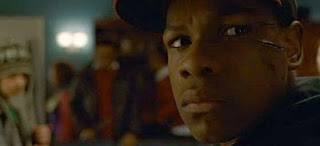








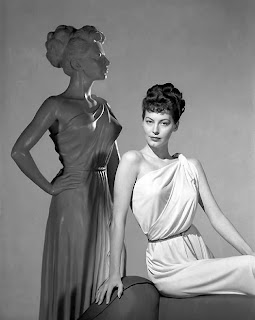
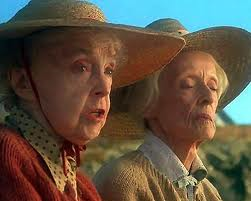



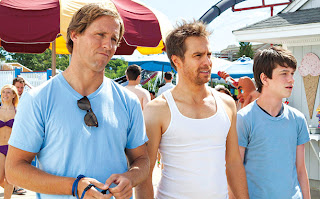

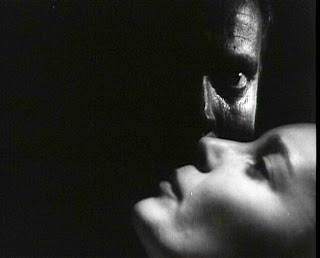


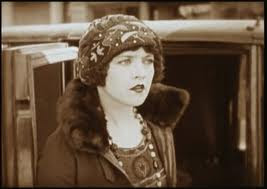
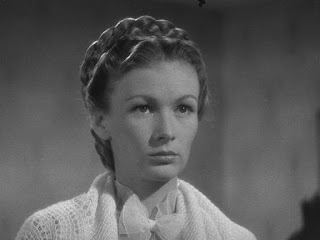








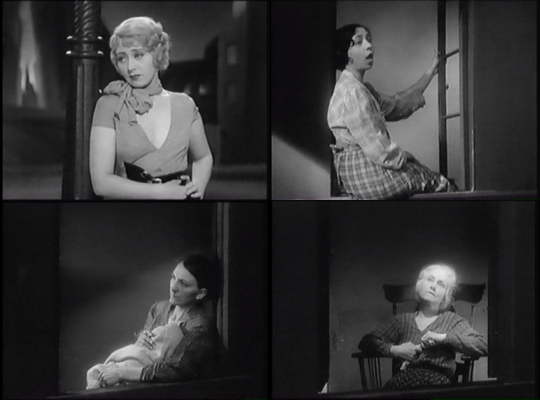



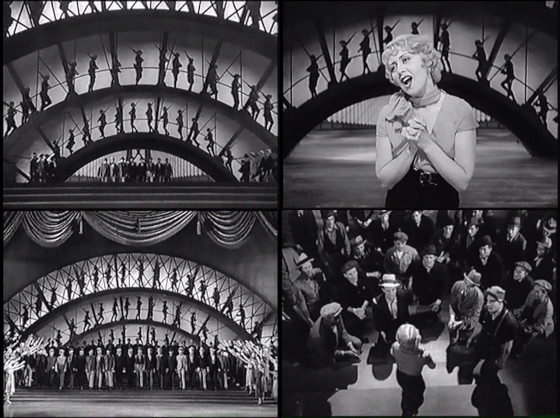










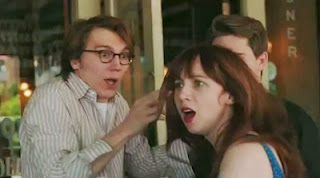




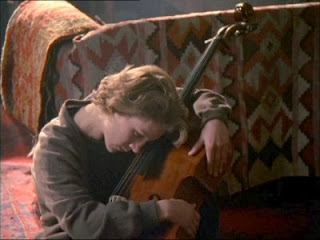

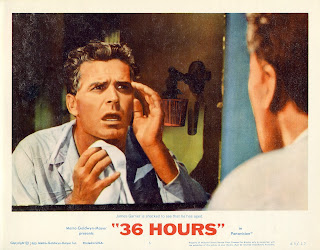
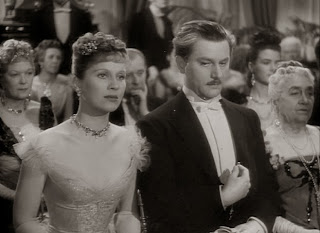.jpg)



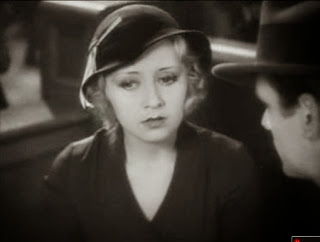
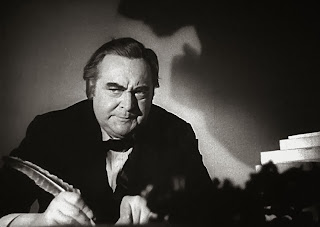

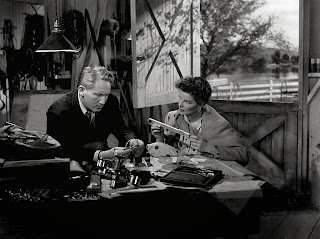_01.jpg)










.jpg)
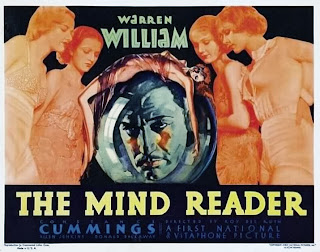









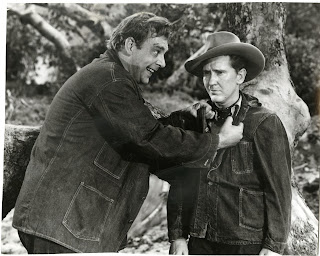
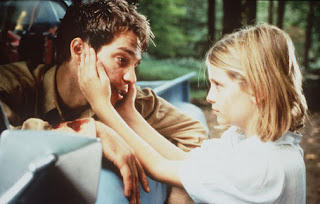
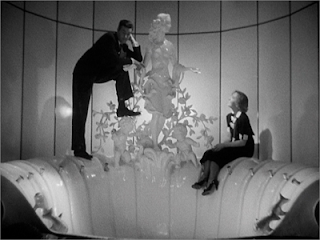
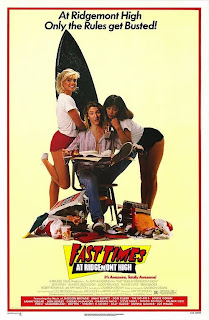
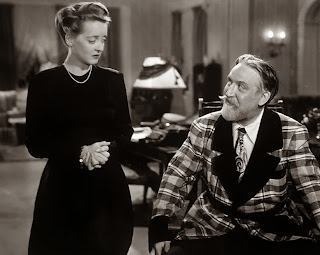
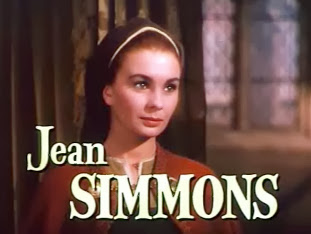
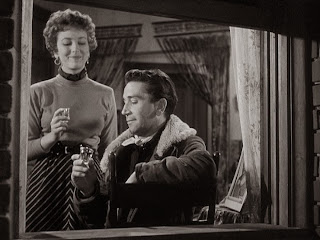
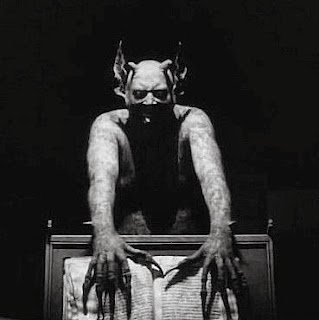
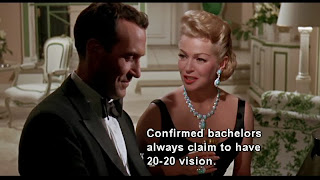
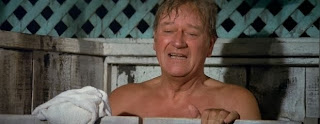
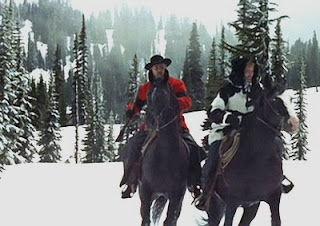
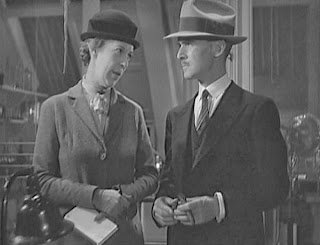




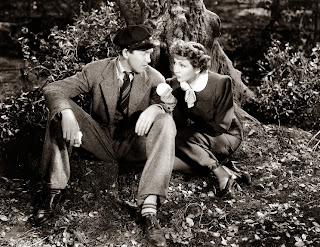

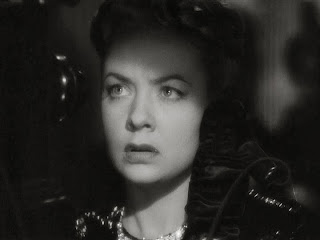


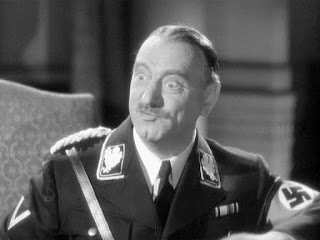
















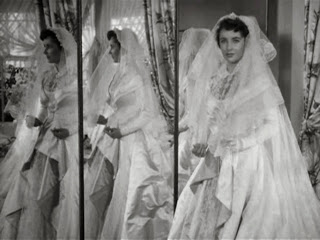
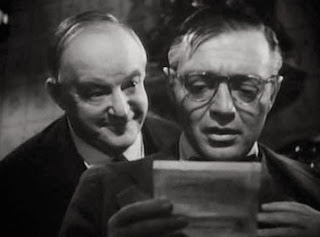










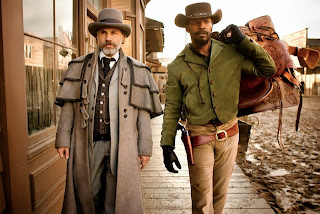

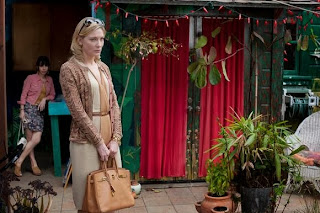





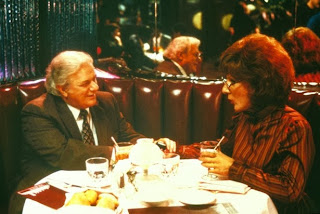








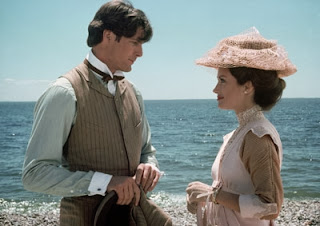

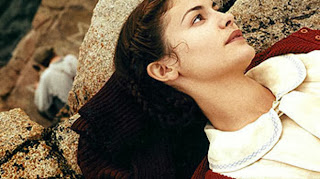
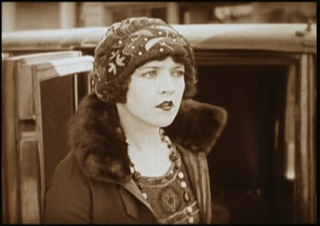+close+up.png)


